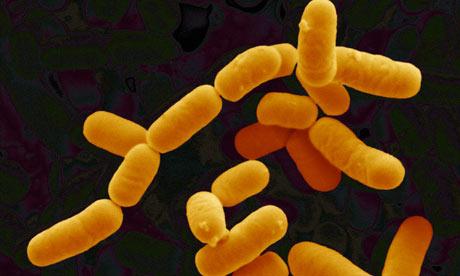Probiotics, stress, and the gut-brain axis

New Irish research shows probiotic bacteria may help reduce anxiety, stress and depression, writes John Holden.
The ‘gut-brain axis’ is the term used by gastroenterologists and neuroscientists to describe the strong communication links between the organ that decides what we eat and the organ where that cream pie eventually ends up. For the layman, communications between the stomach and the brain don’t go much further than the shame sometimes felt after a snackbox at 2am.
In fact, the brain and gut are involved in constant two-way communication. So much so that the enteric nervous system is sometimes described by scientists as the ‘other brain’ or the ‘little brain’.
New research at the Alimentary Pharmabiotic Centre (APC) in University College Cork found that microbes in probiotic bacteria - frequently found in yoghurt - may help to alleviate stress, anxiety, and depression. This shows, for the first time, that probiotics could have a direct effect on normal brain chemistry.
The research team, led by Dr Javier Bravo and Professor John Cryan at the APC, showed that when mice were fed with Lactobacillus rhamnosus JB-1, the animals displayed significantly fewer stress, anxiety and depression-related behaviours compared with a control group. In addition, the mice who had ingested the bacteria had lower levels of the stress-induced hormone, corticosterone.
The microbes affect a class of receptors in the brain known as the inner GABA (gamma-aminobutyric acid) receptors. “This is the main inhibitory neurotransmitter in the brain,” explains Professor John Cryan of APC.
Many neurotransmitters can be separated into two camps: excitatory and inhibitory. What neurotransmitters do in the brain is activate receptors. The effect of such an activation on the body depends on the properties of those receptors, that is, to excite or inhibit. “We found that the probiotic microbes work in the same way as say something like valium would by modifying GABA which resulted in changes in the receptors for this neurotransmitter,” says Cryan. “Regular feeding with the Lactobacillus strain resulted in changes in the expression of receptors for the neurotransmitter GABA in the mouse brain.”
It’s too early to say whether the findings will be of use in a preventative or curative capacity for those suffering from stress, anxiety or depression. But it does auger well for the future. “This new research shows that by modifying gut bacteria, we can affect behaviour and susceptibility to stress. It’s early days in the research and we’re still only studying its effect in animals. So it hasn’t been transmitted to a clinical environment yet. But it certainly opens up new avenues.”
The research was carried out in conjunction with the Brain-Body Institute at McMaster University in Canada. “We were able to reproduce the same research results in both institutions which shows that the findings are quite robust,” says Cryan.
“I’m a neuroscientist based here in UCC,” he says. “The APC have a very strong tradition in gastrointestinal studies. They are particularly interested in all the health benefits that modifying bacteria can have, from inflammation of the stomach, to obesity, and even our own interactions. So for this research we were essentially putting our expertise together. There is a lot of interest right now in how the gut and brain communicate.”
